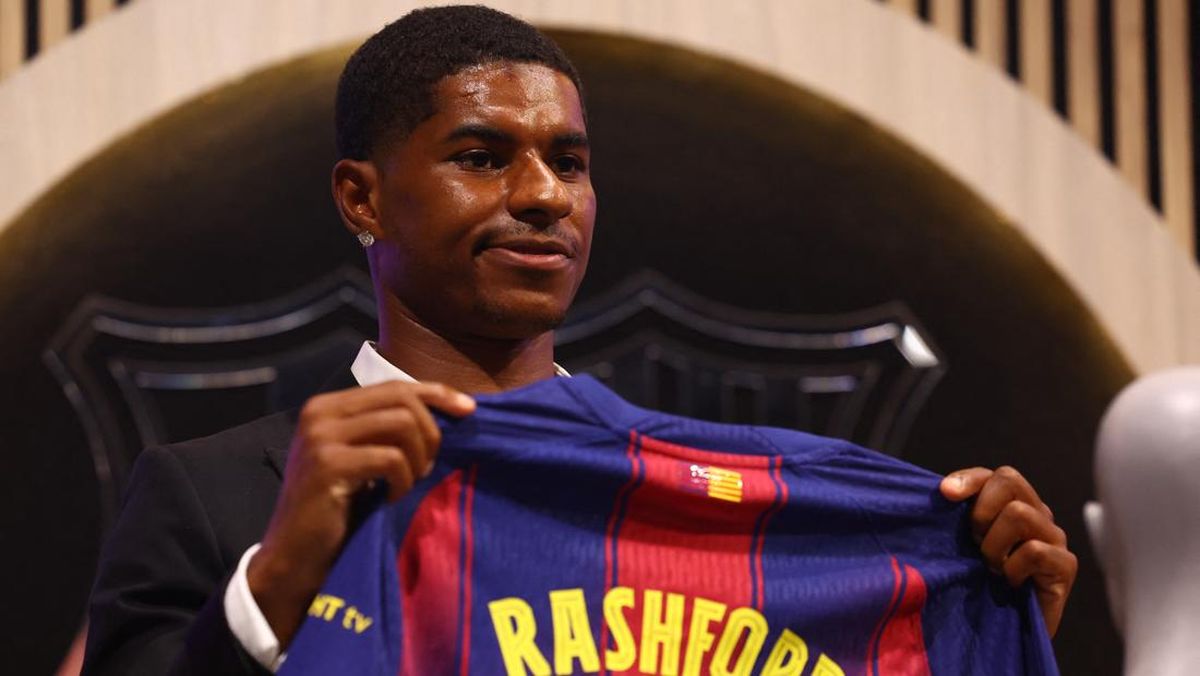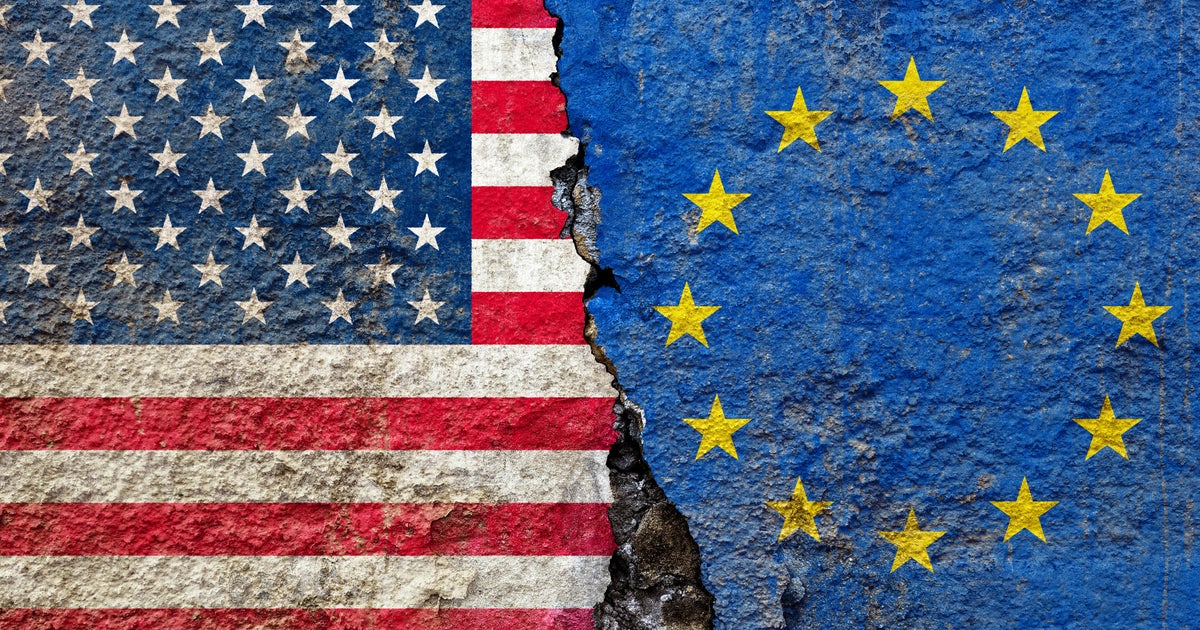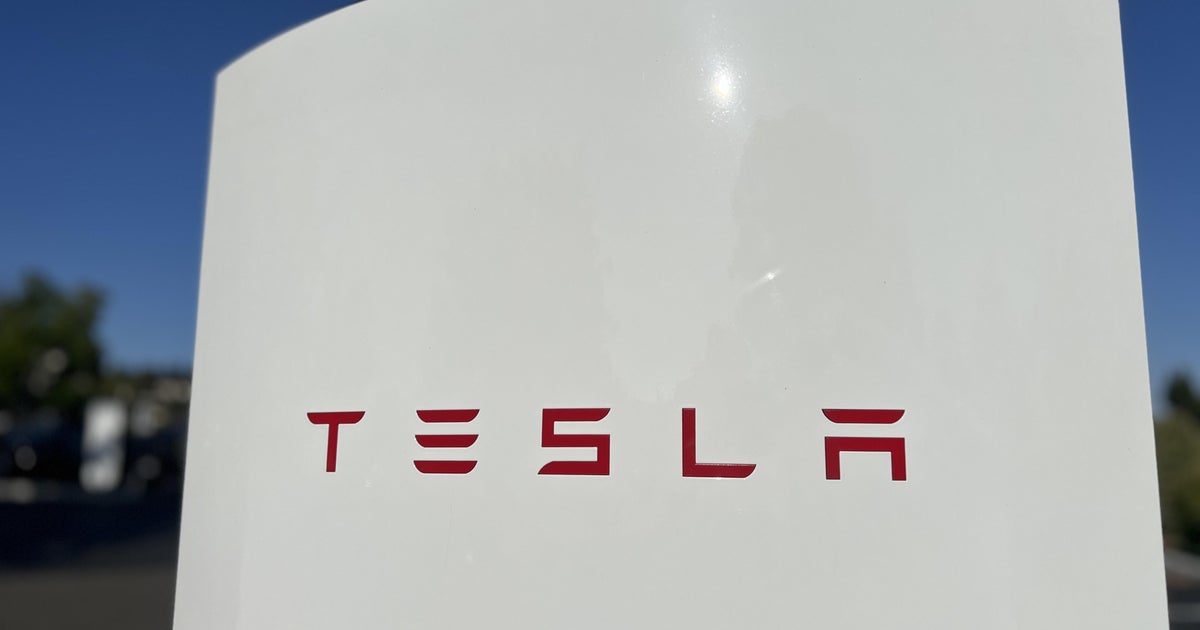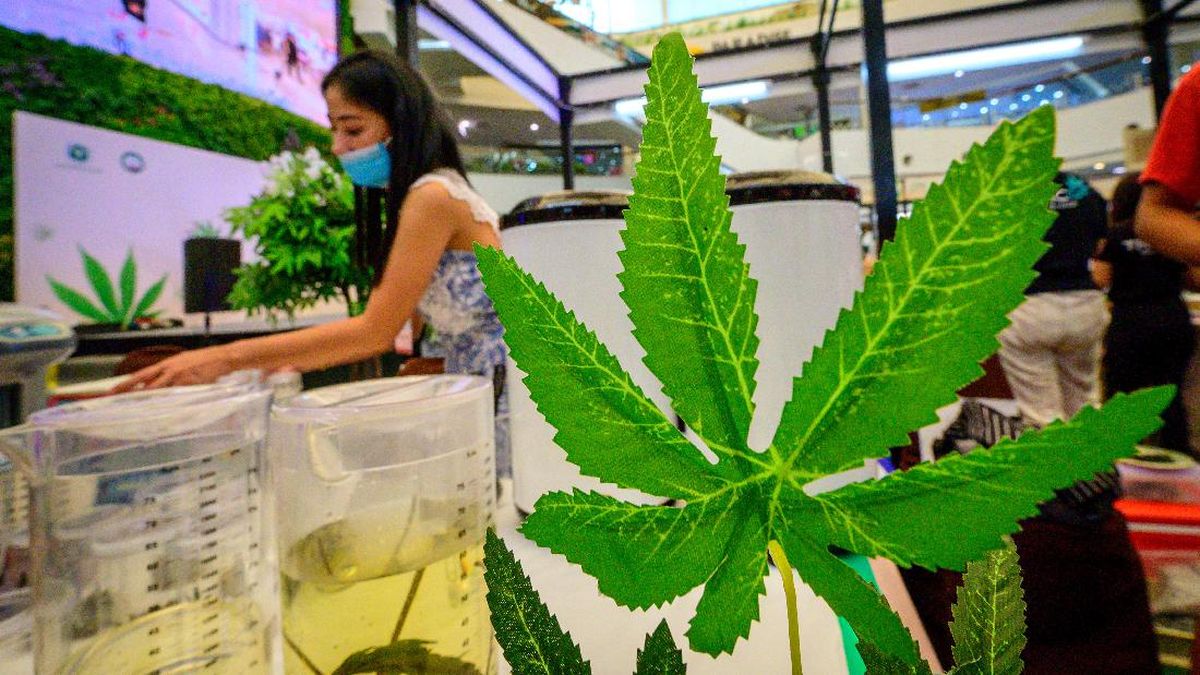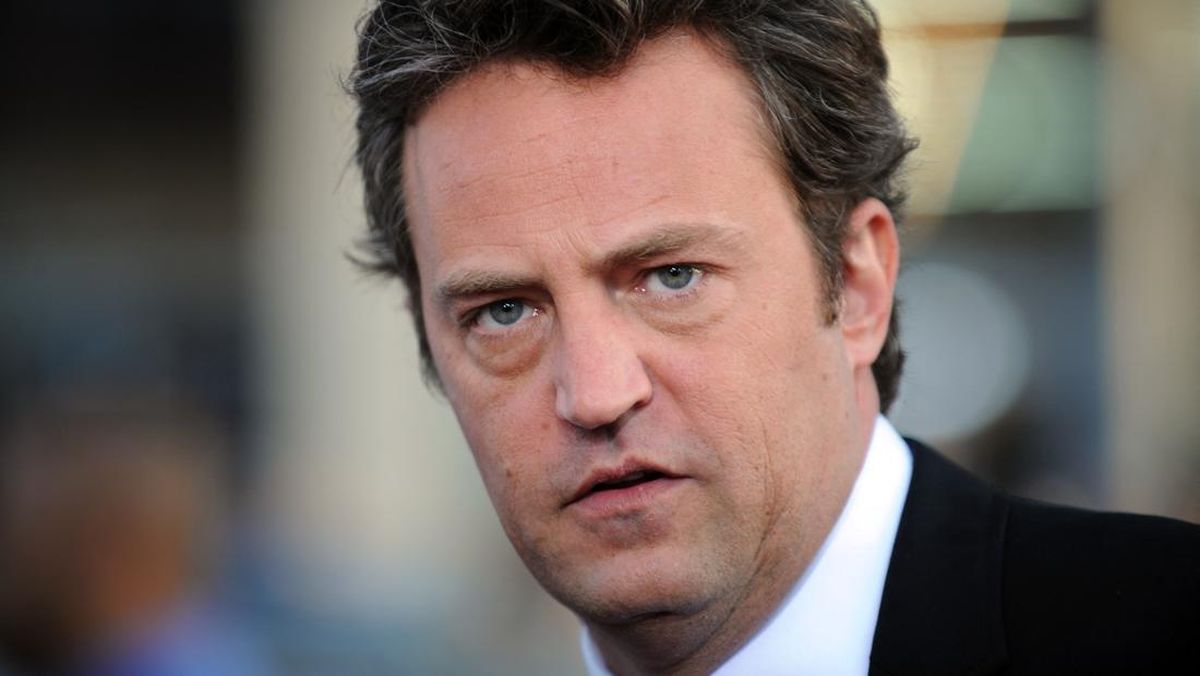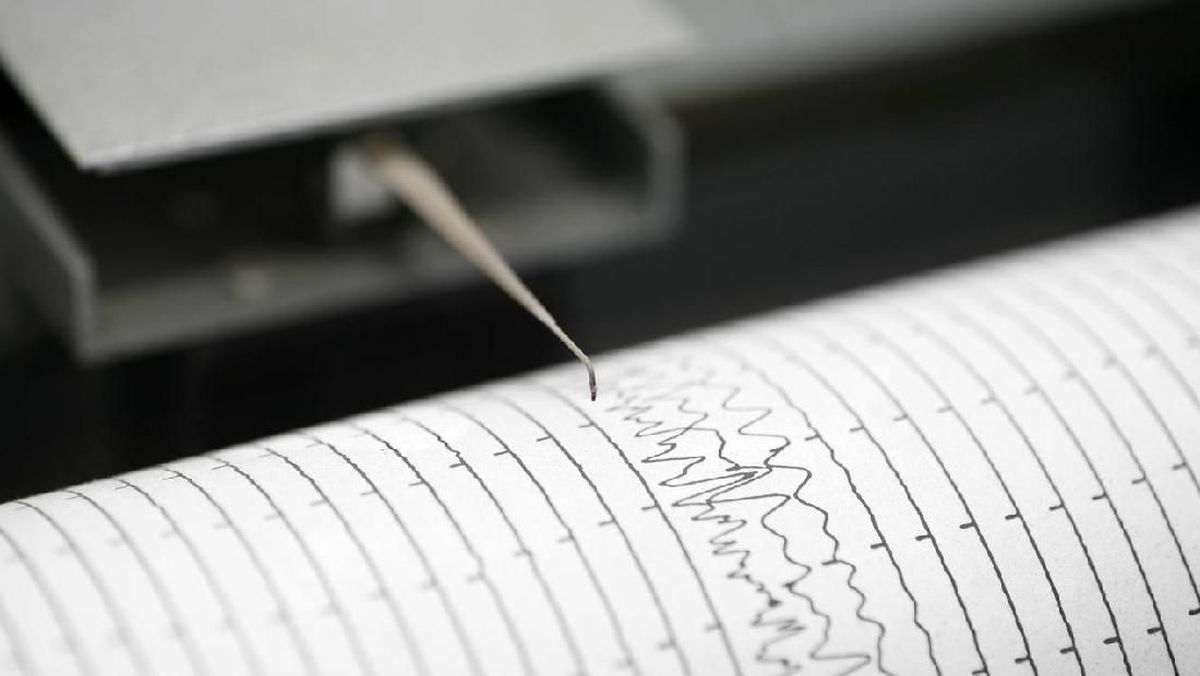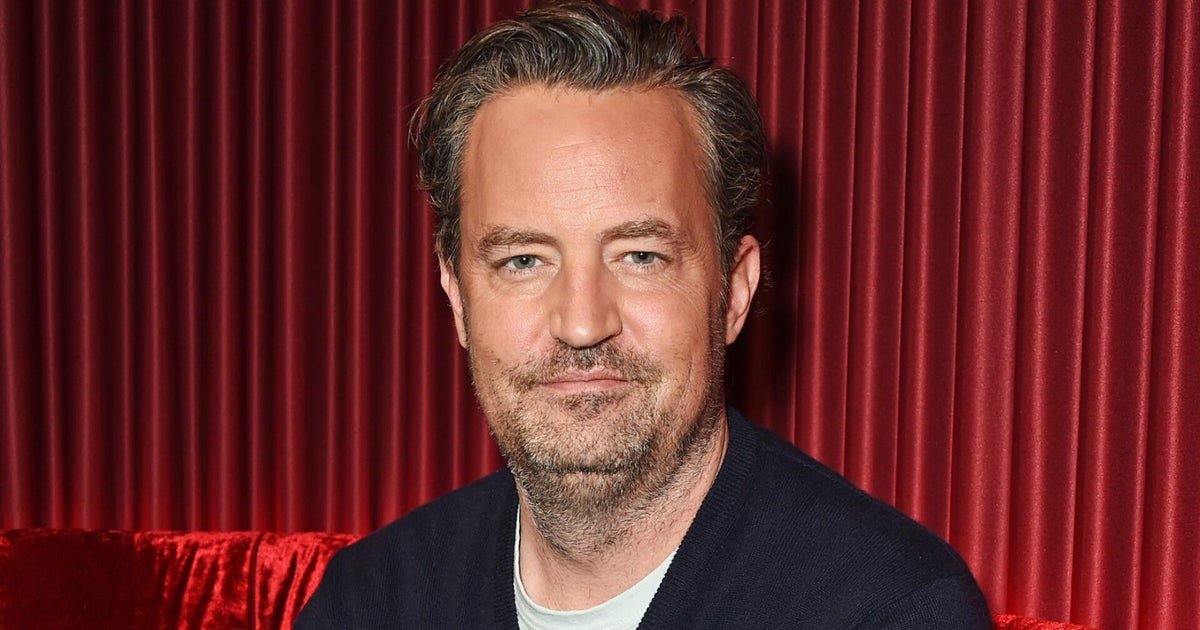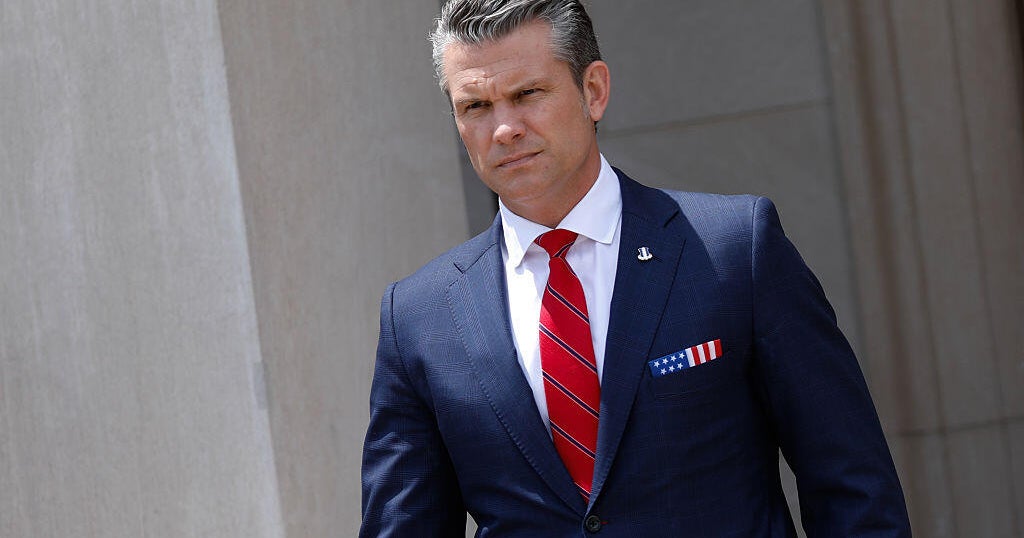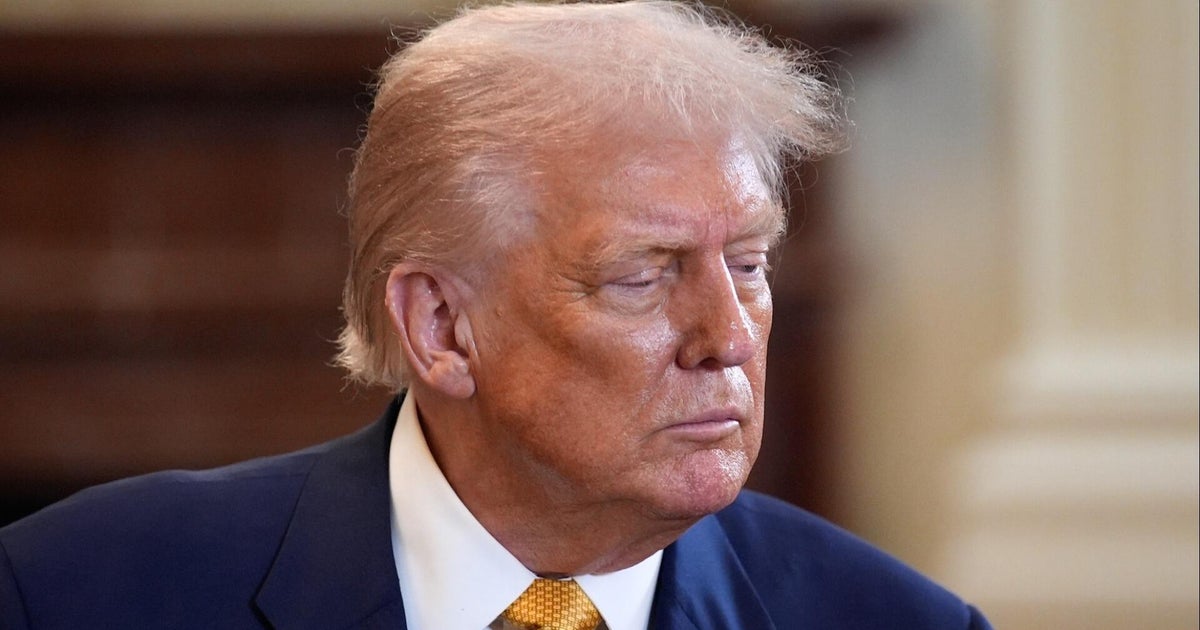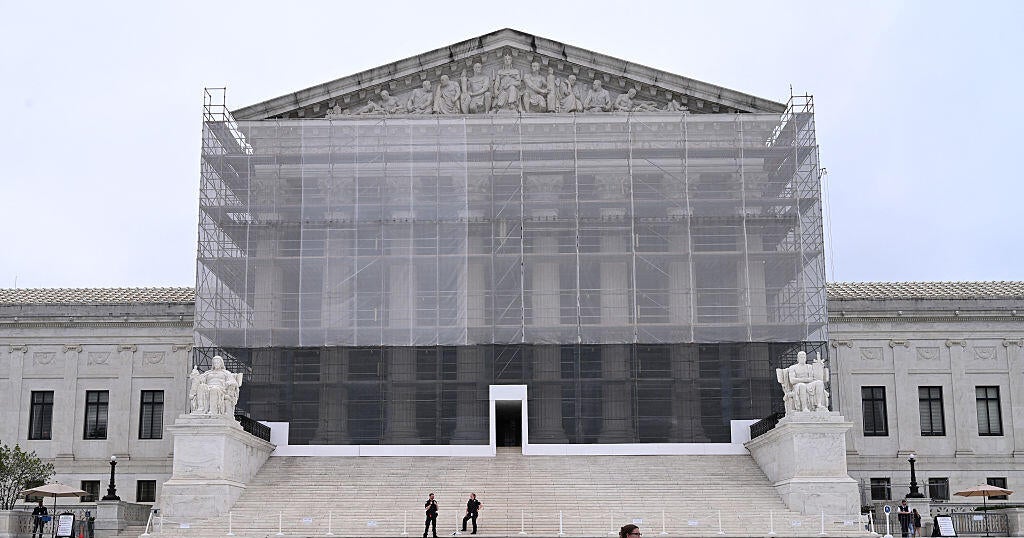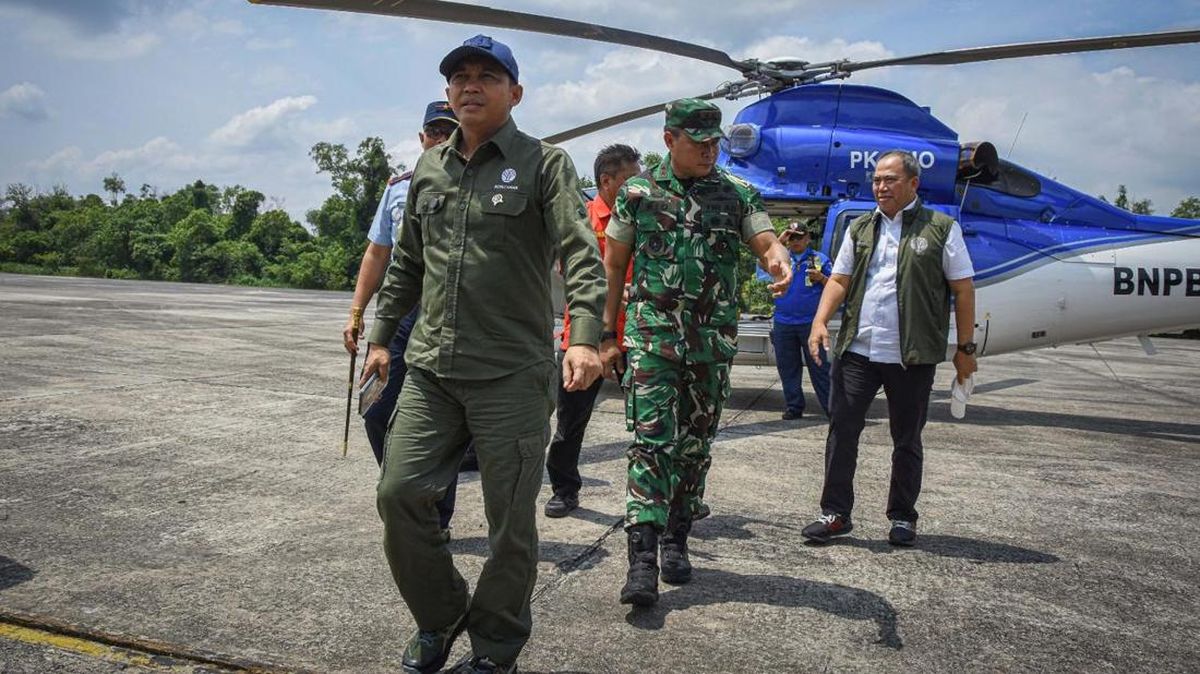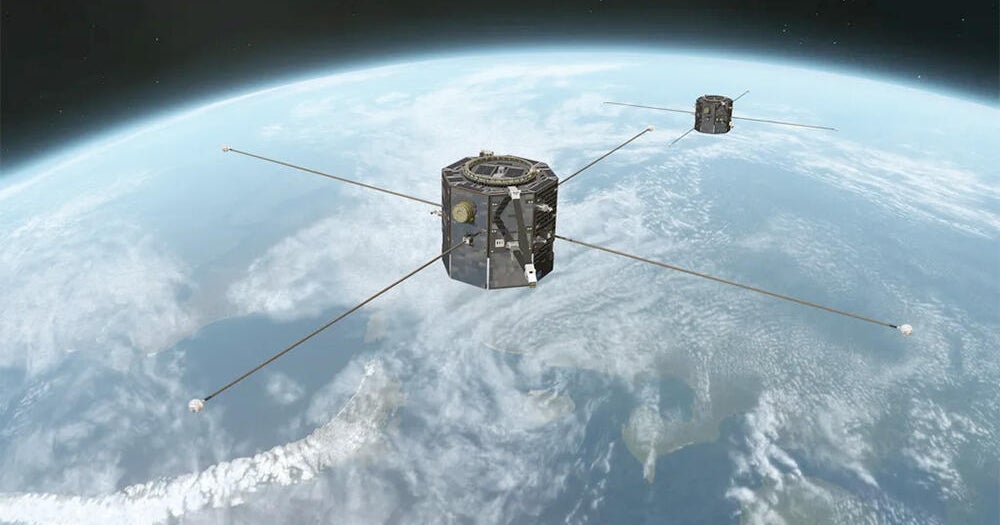Protests in Ukraine over new law
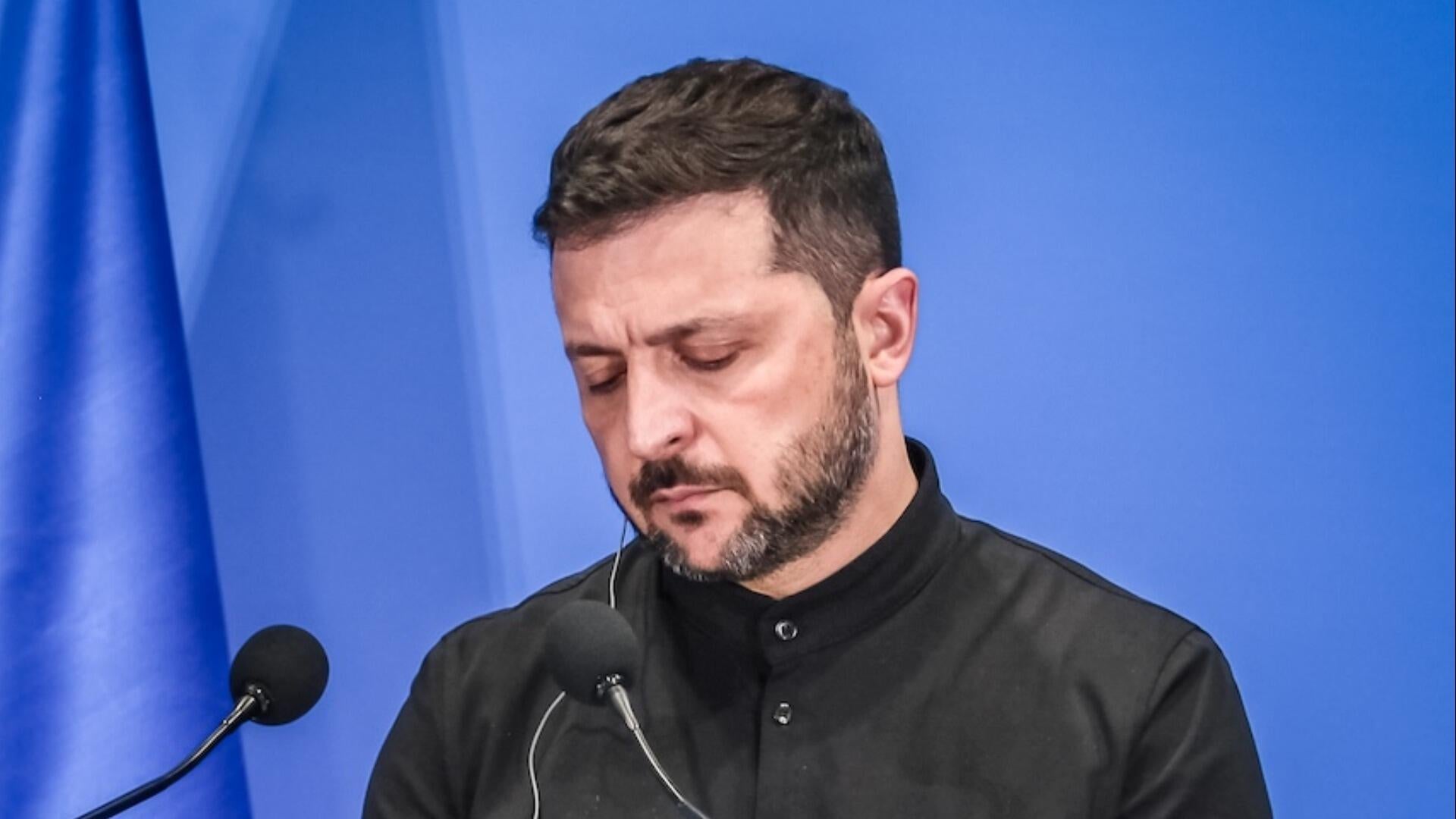
London — In a first since Russia launched its full-scale invasion more than three years ago, widespread protests have taken place across Ukraine — not against Russia or its President Vladimir Putin, but against Ukraine's own President Volodymyr Zelenskyy and the country's parliament, the Rada.
Late Tuesday night, Zelenskyy signed a bill into law, after it was fast-tracked through the Rada, that gives Ukraine's prosecutor general (roughly equivalent to the U.S. attorney general), more power over two anti-corruption agencies long known for their fierce independence. The prosecutor general is a political appointee, not an elected official.
In the hours before Zelenskyy signed the measure, thousands of people in the capital Kyiv, the western city of Lviv, Dnipro in the east and Odessa in the south made their frustration and fear known, defying martial law bans on mass gatherings to come out and protest. Their concern is rooted in the continued autonomy of Ukraine's National Anti-Corruption Bureau (NABU) and the Specialized Anti-Corruption Prosecutor's Office (SAPO), which for years have sought to combat graft by public officials, regardless of their political affiliation.
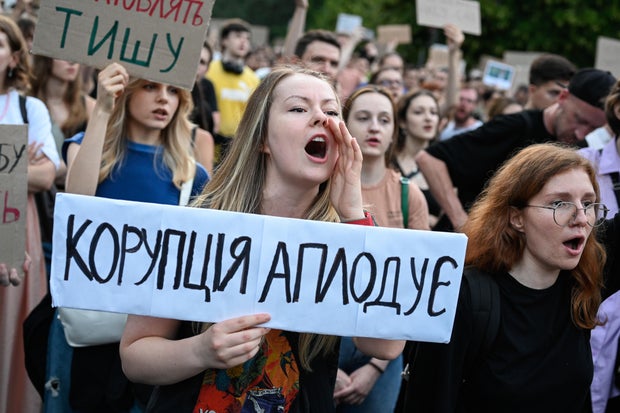 People take part in a rally against the implementation of a law that regulates the work of the Special Anti-corruption Prosecutor's Office and the National Anti-Corruption Bureau in Kyiv, Ukraine, July 22, 2025.
Danylo Antoniuk/Anadolu/Getty
People take part in a rally against the implementation of a law that regulates the work of the Special Anti-corruption Prosecutor's Office and the National Anti-Corruption Bureau in Kyiv, Ukraine, July 22, 2025.
Danylo Antoniuk/Anadolu/Getty
Some critics argue the new law is political retribution. In April, Ukraine's National Anti-Corruption Bureau charged a former deputy head of Zelenskyy's administration, Andrii Smyrnov, with money laundering and accepting a bribe. Others fear a potential backslide back into some degree of authoritarianism in the country that was previously led by pro-Russian President Viktor Yanukovych, who was known for his close ties to oligarchs.
The 27-nation European Union, which has been a staunch supporter of Zelenskyy and Ukraine since Russia launched its invasion, also voiced concern over the changes to the management of the anti-corruption agencies. Demonstrably fighting corruption is crucial to Ukraine's bid to join the EU.
EU Enlargement Commissioner Marta Kos called the vote by Ukraine's parliament "a serious step back" in a post on social media, adding that "independent bodies like NABU & SAPO are essential for Ukraine's EU path. Rule of Law remains in the very center of EU accession negotiations."
Zelenskyy appeared to acknowledge the anger in his country over the new legislation, saying in a statement posted on social media after the Rada's vote: "We all hear what society is saying."
"We see what people expect from state institutions — ensured justice and the effective functioning of each institution. We discussed the necessary administrative and legislative decisions that would strengthen the work of each institution, resolve existing contradictions, and eliminate threats," Zelenskyy said. "Everyone will work together. At the political level, we will provide support."
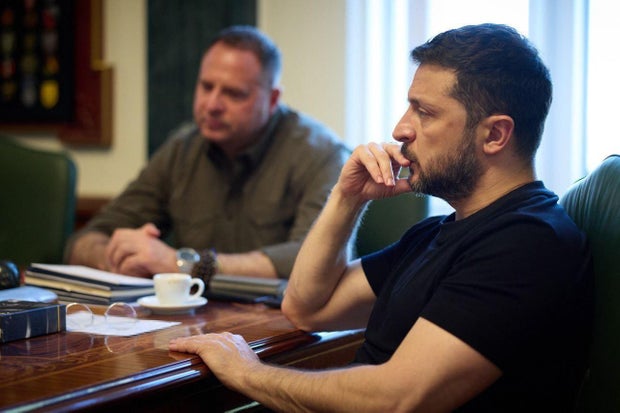 Ukrainian President Volodymyr Zelenskyy holds a meeting with Secretary of the National Security and Defense Council of Ukraine Rustem Umerov and Head of the Presidential Office Andriy Yermak, to discuss the peace negotiations with Russia, July 22, 2025, in Kyiv, Ukraine.
Volodymyr Zelenskyy/Telegram/Anadolu/Getty
Ukrainian President Volodymyr Zelenskyy holds a meeting with Secretary of the National Security and Defense Council of Ukraine Rustem Umerov and Head of the Presidential Office Andriy Yermak, to discuss the peace negotiations with Russia, July 22, 2025, in Kyiv, Ukraine.
Volodymyr Zelenskyy/Telegram/Anadolu/Getty
Earlier he had stressed that the two anti-corruption agencies would still "work," but he said they needed to be clear of what he claimed was "Russian influence." He said some major corruption cases had been "lying dormant" with the agencies for years without any rational explanation, but offered no explanation of the alleged Russian influence.
New round of Russia-Ukraine peace talks
The Kremlin, meanwhile, confirmed that a third round of direct Russia-Ukraine peace talks would begin in Turkey on Wednesday evening.
"Our delegation is flying to Istanbul, and indeed negotiations are scheduled to take place there tonight," said spokesperson Dmitry Peskov. "The main topic of discussion will be peace memorandums that were shared during the second round of talks."
He said the two sides would discuss further prisoner swaps. Over the past two months, Russia and Ukraine have exchanged more than 1,000 prisoners of war, but the negotiations have thus far yielded little hope of a ceasefire in the war.
On Tuesday, Peskov said Moscow did not expect any "miraculous breakthrough" in Turkey, calling the two sides "diametrically opposed."
Moscow has demanded a litany of concessions from Ukraine, including that it give up territory Russian troops have seized during the war. Russia currently occupies about a fifth of Ukraine's territory. Putin's government has also demanded that Ukraine abandon its ambitions of joining the EU and the U.S.-led NATO alliance, and even insisted that it should significantly downsize its military and make Russian the official language of Ukraine.
Ramy Inocencio is a CBS News foreign correspondent based in London, covering Europe and the Middle East. He joined the Network in 2019 as CBS News' Asia correspondent, based in Beijing and reporting across the Asia-Pacific, bringing two decades of experience working and traveling between Asia and the United States.

